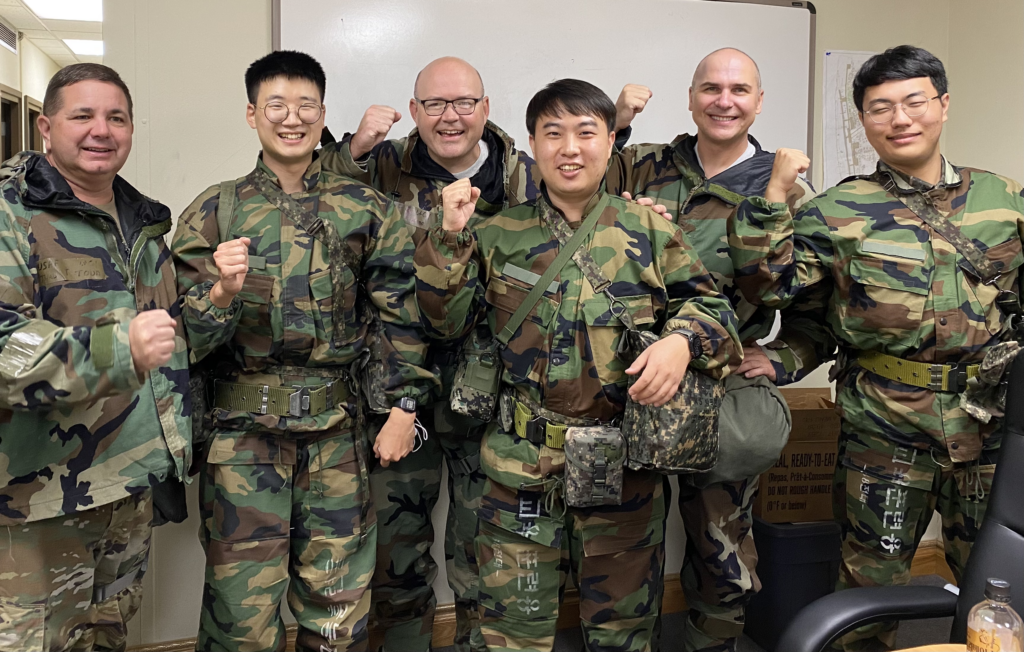The heart of the chaplain’s calling is fundamentally the same as the calling of every Christian: to live as one who has been sent on mission. Jesus told His followers that just as He had been sent by the Father, so He was sending them (see John 20:21).
Missional evangelism is not a program or an event—it’s a way of life. For chaplains, being on mission means embracing a state of continual sentness, moving toward obedience to fulfill the mission of God. The call to chaplaincy isn’t about waiting for people to come to the church—it’s about bringing the presence of Christ into hospitals, military bases, prisons, and disaster zones.
Chaplains are sent ones, ambassadors for Christ. They meet people in moments of crisis, sometimes only for a short time, but always with the same purpose: sharing the gospel and making Christ known.
As we think about the call of chaplains to live sent, here are five things every chaplain needs to know.
1. Missional Evangelism: A Biblical Foundation for Chaplains
Jesus was missional. He knew His purpose and was set on fulfilling it. He compared His mission as essential as eating (see John 4:34). Even as He approached the cross, He did not retreat from His purpose. He shared with His disciples, “My soul is troubled. What should I say—Father, save me from this hour? But that is why I came to this hour” (John 12:27).
Just as Jesus continued to move forward in the mission the Father had given Him, He has His followers on mission as well. The early church understood this. Acts 1:8 says: “You will be my witnesses in Jerusalem, Judea, Samaria, and to the ends of the earth.” For chaplains, that might read: “You will be my witnesses in your military base, your prison, your hospital, your disaster zone.”
Philip in Acts 8 is one of my favorite examples of missional evangelism. He was sent to the middle of nowhere, met an Ethiopian official, shared the gospel in a single conversation, and saw a life changed forever. That’s the heart of chaplaincy. We don’t always get to see the end of the story. But we go where we’re sent, we share the hope of Christ, and we trust God with the results.
2. The Chaplain’s Mission Field: Beyond the Church Walls
Many pastors see the immediate sphere of the local church as the center of ministry. And it is. But chaplaincy is a reminder that the church is not the mission’s destination—it’s the launchpad.
The book of Acts shows us two paradigms of missional ministry: one being missional ministry within the sphere of the local church as a base of operation. The other paradigm is missional ministry beyond the spere of the local church as a sending platform. These two paradigms help us understand our various missional callings. We see evangelism happening inside the sphere of the gathered church (see Acts 2) and outside of or beyond it (see Acts 8, 10, 16). A great illustration of the latter is the Apostle Paul being placed with and under the military in order to strategically advance the gospel in numerous ways (Acts 21-28; Philippians 1:12-13).
Nontraditional missional ministry roles, like those of chaplains, fall within the sphere of the second paradigm. Both and all are the intended Spirit-led, missional ministry of God’s church! We minister in places where people can’t—or won’t—come to church. The military base. The prison cell. The hospital room. The frontline of a disaster.
If you’re a pastor reading this, I urge you to see your chaplains as your missionaries. They are your sent ones, carrying the gospel into places most churches can’t reach. Support them. Pray for them. And if you have military personnel, first responders, or medical workers in your congregation, equip them for ministry in their own mission field.
3. Maximizing Every Encounter: The Urgency of Missional Evangelism
Chaplaincy is often a ministry of moments. Unlike a local church pastor, who might have years to disciple someone, chaplains minister in temporary encounters. We encourage soldiers who are about to deploy or patients soon to enter surgery. In those moments, chaplains stand in the gap.
Philip had one encounter with the Ethiopian eunuch. Paul had a single night with the Philippian jailer. Jesus had one conversation with the woman at the well. In nontraditional ministry roles, we don’t always get the luxury of long-term ministry. That’s why we must be intentional and prepared.
So, be ready. Know how to share the gospel clearly and concisely. Be a faithful presence so that when the Holy Spirit opens a door, you can walk through it.
4. Breaking Barriers: Overcoming Challenges in Missional Ministry
Let’s be honest. Chaplaincy – missional ministry beyond the sphere of the local church as a sending platform – is not easy. Some environments are resistant, even hostile, to the gospel. Institutional settings have rules. Military structures have limitations. Hospitals have policies.
But let me remind you that God has never been limited by human structures. Paul evangelized while under house arrest, Peter preached in forbidden places, and Jesus ministered in enemy territory.
We may not always be able to preach from a pulpit, but we can live in such a way that Christ’s presence is undeniable. A chaplain’s ministry is often relational before it is proclamational. Live the gospel so that when someone is ready to ask about the hope you have, you’re already there.
Not everyone is called to chaplaincy, but everyone is called to live sent. Pastors, encourage your congregation to see their workplaces, their schools, and their communities as mission fields.
5. A Call to Chaplains and Pastors: Living Sent Together
Chaplain, you don’t have to do more ministry inside the church to validate your calling. Your ministry is the ministry of the church. You are not an outsider; you are an extension of the body of Christ into places most believers will never go or be sent.
I challenge pastors to support chaplains as you would support missionaries. Pray for them. Stay connected. Provide resources. When they come back from deployment or a tough season, give them a place to rest and be refreshed.
If you are a chaplain looking for community and support, stay connected to the local church. Integrate yourself into the life of the church and join a small group.
Because here’s the truth: we are all sent. Some to the pulpit. Some to the base. Some to the prison. Some to the streets. But all of us are called to missional evangelism—to bring Christ wherever He sends us.
So, live sent. Because the mission is not just for inside the walls of the church as a base of operation. The mission is everywhere.
Published March 27, 2025


